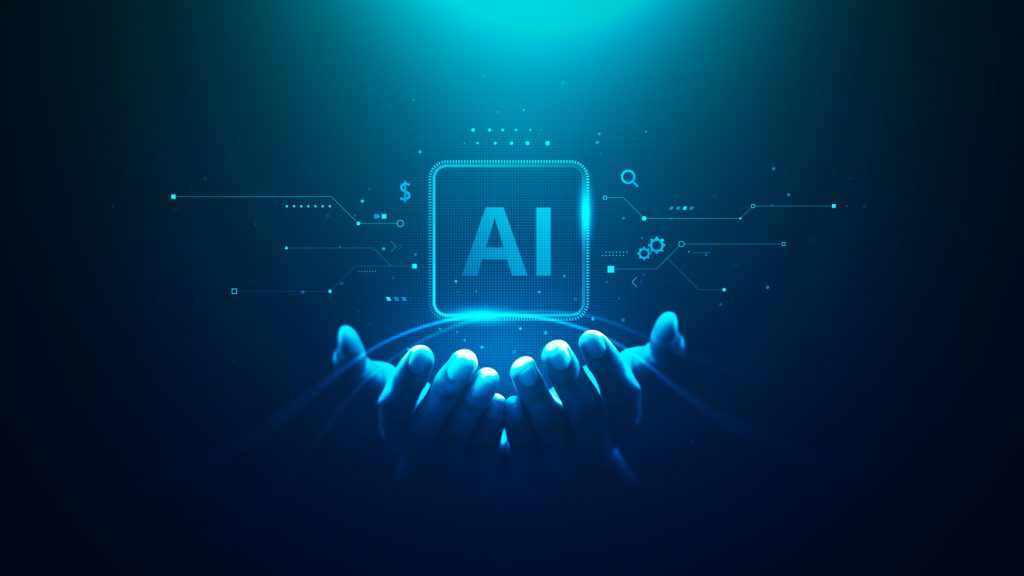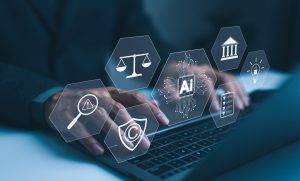AI in the Legal Profession: The Rise of Machines – But Will Lawyers Ever Be Obsolete?"
Artificial intelligence (AI) is no longer a distant prospect in the legal industry; it’s here, and it’s transforming the way lawyers work. Recent research by LexisNexis shows that 82% of lawyers are either using or planning to integrate AI into their practices, up from just 39% the previous year. This significant uptick reflects the growing appeal of AI in a profession traditionally known for its cautious approach and heavy workload. Yet, despite its rapid adoption and proven efficiency in certain areas, AI’s limitations have become increasingly clear. While AI is certainly enhancing efficiency, it remains far from a substitute for human expertise.
How AI is Enhancing Efficiency in Law
One of AI's most significant contributions to the legal sector is its ability to vastly improve efficiency. Legal professionals often grapple with time-consuming tasks such as document review, research, and contract analysis. Generative AI tools now enable lawyers to process vast quantities of data in minutes, performing tasks that would otherwise take hours or even days. For example, AI can swiftly identify relevant precedents, flag inconsistencies, and generate insights from historical data, allowing lawyers to focus their attention on more strategic, complex work.
In fact, AI has become especially adept at tasks governed by rules or patterns. Compliance checks, data extraction, and document review are prime examples of areas where AI can outperform humans due to its ability to handle repetitive tasks with precision. This is where AI has truly shone: automating routine processes, thereby freeing up lawyers’ time to tackle the high-level, intricate aspects of legal practice.
However, while AI excels at rule-based tasks, it lacks the nuance and flexibility that are central to the core of legal work. AI can’t replicate the critical thinking required to evaluate complex scenarios, nor can it offer the kind of creative legal strategy that comes from years of human experience.
AI's Limitations: Complex Legal Scenarios and Critical Thinking
As AI becomes more deeply integrated into legal practices, its shortcomings have become more apparent. The technology can process large amounts of data and recognise trends, but it struggles with complex legal issues that require critical thinking and a deep understanding of human contexts.
For example, many legal decisions involve weighing conflicting interests, ethical considerations, and the potential impacts on people’s lives and businesses. AI can analyse data, but it lacks the moral compass required to navigate these sensitive areas. Lawyers, on the other hand, bring years of experience, a thorough understanding of legal precedents, and an ability to exercise ethical judgement. These are qualities AI cannot replicate—at least, not in any meaningful way.
Legal strategy is another area where AI falls short. The best lawyers are not just technically skilled—they are creative, adaptive, and capable of tailoring their approach to each client’s unique circumstances. They anticipate potential roadblocks, navigate risks, and adapt strategies as new information comes to light. AI may be able to recognise common patterns, but it cannot develop dynamic strategies based on real-time developments or adjust to unforeseen challenges as a human lawyer would. For instance, during litigation, lawyers draw on a blend of industry knowledge and instinct to anticipate how a case may evolve, something AI simply cannot achieve with the same level of insight and foresight.
The Human Element: Client Relationships and Empathy
One of the most significant areas where AI is unlikely to replace lawyers is in client relationships. Legal matters often involve high stakes, and clients turn to their lawyers not only for expertise but also for empathy and guidance through challenging, emotional situations. Whether navigating personal disputes or corporate acquisitions, the human element in law is essential.
Lawyers are trusted to offer counsel that goes beyond the technicalities of the law—they provide emotional support, understanding, and personal advice that helps clients make difficult decisions. Building rapport with clients, understanding their unique concerns, and offering guidance based on experience are all aspects of legal work that are fundamentally human. While AI can help automate simple tasks like document preparation and case research, it cannot replace the personal touch that forms the bedrock of strong lawyer-client relationships.
This "human factor" is becoming increasingly vital as AI continues to make inroads into legal practices. Technology may streamline processes, but the personal connection that lawyers have with their clients—built on empathy, communication, and trust—is irreplaceable.
The Future: Collaboration, Not Replacement
While AI's role in the legal sector is undeniably transformative, its future is one of collaboration, not replacement. Far from rendering lawyers obsolete, AI enhances the capabilities of legal professionals, allowing them to focus on what they do best: applying judgment, creativity, and expertise to complex cases. Generative AI tools like chatbots or document automation software can serve as valuable assistants, taking care of routine work, but they cannot replicate the core aspects of legal practice, such as interpreting the law, devising strategies, and navigating ethical dilemmas.
The reality is that, as AI continues to evolve, its presence in the legal industry will grow, but it will serve as a complement to human lawyers rather than a substitute. AI can help analyse large datasets, identify trends, and automate basic tasks, but when it comes to the intricacies of legal strategy, client management, and critical thinking, human expertise will remain essential.
In this sense, AI is not the end of the legal profession—it is a tool that, when properly integrated, will amplify the strengths of lawyers, allowing them to deliver better, more efficient services while maintaining the human touch that is so critical in law.
As we look to the future, the trajectory of AI in law is one of enhancement rather than elimination. The rise of machines may change the way lawyers work, but it is clear that human judgement, creativity, and empathy will continue to define the legal profession for the foreseeable future.





















